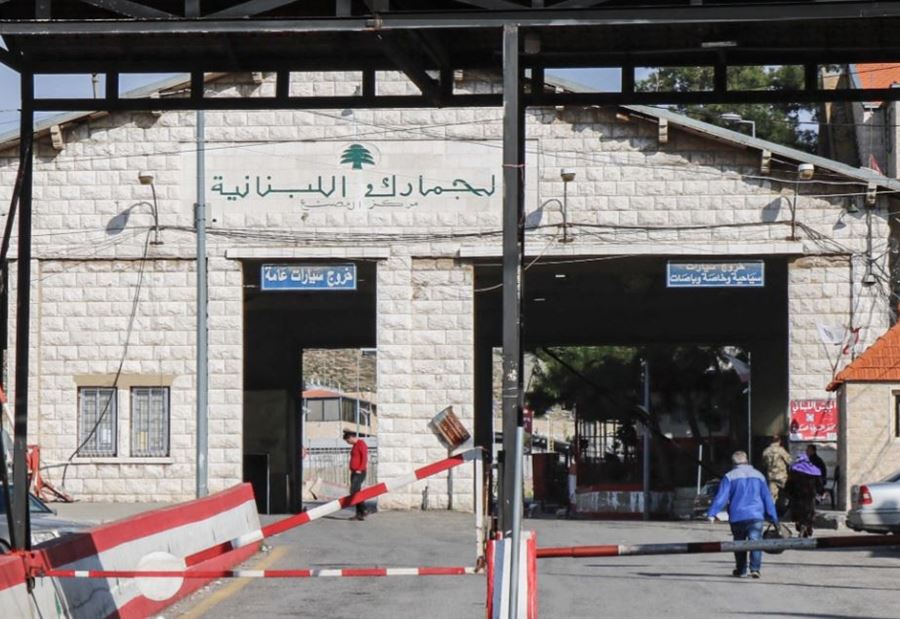انفراجات كبيرة.. القطاع الزراعي اللبناني على طريق التعافي
يمر القطاع الزراعي اللبناني بمرحلة دقيقة وحساسة بفعل التحديات الاقتصادية والأزمات السياسية الأخيرة، إلا أن الجهود الكبيرة التي يبذلها المزارعون تبشر بانفراجات مهمة في الفترة المقبلة، مع انطلاقة موسم زراعي جديد وفتح آفاق اقتصادية مع الدول المجاورة.
التحديات الراهنة للمزارعين في لبنان
وفقًا لما صرّح به رئيس تجمع مزارعي وفلاحي البقاع، إبراهيم ترشيشي، فإن المزارعين يواجهون ضغوطًا كبيرة نتيجة الخسائر المادية التي تكبدوها خلال فترات الحرب وتبعاتها الاقتصادية، حيث فقد العديد منهم رأس مالهم بسبب:
- تدمير المحاصيل الزراعية.
- الأضرار التي لحقت بالمعدات والمزارع.
ويؤكد ترشيشي أن “المزارعين يعملون حاليًا على تصريف الإنتاج القديم والتحضير للموسم الزراعي المقبل، خصوصًا مع اقتراب موسم زراعة القمح وشراء بذور البطاطا المستوردة تمهيدًا لزراعتها في منطقتي عكار والبقاع“.
تعويضات وخطط لدعم المزارعين
بالرغم من حجم الأضرار، لا يتوقع ترشيشي تقديم تعويضات سخية، مشددًا على أهمية تقديم حلول شاملة تضمن استفادة جميع المزارعين المتضررين.
المقترحات العملية لدعم القطاع الزراعي:
- تقديم قروض زراعية عبر مصرف لبنان وبنك التسليف الزراعي.
- دعم مشاريع الطاقة الشمسية للمزارعين بقروض طويلة الأجل وبفائدة صفرية.
- تعويضات عملية ومنظمة تساهم في إعادة تشغيل المزارع والمشاريع الزراعية المتضررة.
انعكاس التطورات في سوريا على الزراعة اللبنانية
يشير ترشيشي إلى أن التطورات الأخيرة في سوريا، خصوصًا بعد التفاهمات الحدودية مع الجانب السوري، قد ساهمت في تسهيل تصدير المنتجات اللبنانية.
- الزيارات الرسمية: شهدت الحدود اللبنانية السورية عند نقطة المصنع زيارة وفد من العمليات العسكرية السورية.
- النتائج الإيجابية:
- تسهيل مرور الشاحنات اللبنانية إلى سوريا.
- استقبال الشاحنات السورية في لبنان.
هذا التقدم يعزز العلاقات التجارية الزراعية والاقتصادية بين البلدين، بغض النظر عن التغيرات السياسية الإقليمية.
حلول للحد من التهريب وتحسين التصدير
في إطار مكافحة التهريب الذي تسبب في خسائر كبيرة للأسواق المحلية والمزارعين، يرى ترشيشي أن:
- تنظيم التصدير عبر المعابر الشرعية يسهم في الحد من عمليات التهريب.
- فرض الرقابة على المعابر يضمن مرور البضائع بشكل قانوني وآمن.
الطريق نحو تعافي الزراعة اللبنانية
يأمل المزارعون في اتخاذ خطوات إضافية لتعزيز الصادرات الزراعية، أبرزها:
- إعفاء كامل من الضريبة على عبور الشاحنات اللبنانية (الترانزيت).
- إعادة فتح الطريق إلى الأردن لتسهيل وصول المنتجات اللبنانية إلى الأسواق العربية والخارجية.
تحقيق هذه الأهداف سيشكل نقلة نوعية في استعادة القطاع الزراعي لعافيته، وزيادة حجم التبادل التجاري بين لبنان والدول المجاورة.
تفاؤل بمستقبل أفضل للزراعة في لبنان
في ختام حديثه، عبّر ترشيشي عن ثقته بأن الجهود المبذولة حاليًا ستساهم في إعادة النهوض بالقطاع الزراعي، مشددًا على أهمية دعم المزارعين وتقديم التسهيلات اللازمة لضمان استمرار عجلة الإنتاج الزراعي.
Major Breakthroughs: Lebanon's Agricultural Sector on the Path to Recovery
Lebanon's agricultural sector is navigating a critical and challenging phase due to the economic crisis and aftermath of recent conflicts. However, the resilience and determination of Lebanese farmers are paving the way for promising recovery signs as preparations for the new agricultural season take shape.
Current Challenges Facing Lebanese Farmers
According to Ibrahim Tarchichi, President of the Bekaa Farmers and Growers Association, Lebanese farmers are struggling with substantial financial losses stemming from:
- Crop destruction during the conflict.
- Damage to equipment and farms.
Tarchichi highlights that many farmers lost their working capital during the crisis, leaving them unable to restart cultivation or invest in their agricultural projects without proper financial assistance.
Currently, farmers are working on:
- Clearing old agricultural produce.
- Preparing for the planting of wheat and importing potato seeds for cultivation in Akkar and later in the Bekaa Valley.
Proposed Solutions to Support Farmers
While significant compensation is not anticipated, Tarchichi suggests practical measures to help farmers regain stability, including:
- Agricultural loans through Lebanon's Central Bank and the Agricultural Credit Bank.
- Financing solar energy projects for farmers with long-term, interest-free loans.
- Implementing inclusive compensation strategies to address widespread damage.
These solutions aim to mitigate farmers' hardships and restore agricultural productivity across Lebanon.
Impact of Syrian Developments on Lebanese Agriculture
Tarchichi notes that recent developments in Syria have had a positive impact on Lebanon's agricultural sector, particularly regarding export logistics.
Key Updates:
- A Syrian military operations delegation visited the Masnaa border crossing, resulting in new agreements to ease:
- Exports of Lebanese agricultural products to Syria.
- Imports of Syrian goods into Lebanon.
These steps have strengthened agricultural and economic relations between the two nations, ensuring smoother trade flow despite political challenges.
Combating Smuggling and Enhancing Legal Exports
Addressing the longstanding issue of smuggling, Tarchichi emphasizes that regulating exports through official border crossings can significantly reduce illegal activities.
Benefits of Organized Exports:
- Ensures legal, safe trade operations.
- Minimizes economic losses for farmers and local markets.
Roadmap for Agricultural Recovery in Lebanon
To enhance agricultural exports and sustain economic progress, Tarchichi calls for:
- Full exemption of transit taxes on Lebanese trucks.
- Reopening trade routes to Jordan to facilitate exports to international markets.
Achieving these objectives will enable Lebanese products to reach broader markets, boosting economic exchange and restoring confidence in the agricultural sector.
A Hopeful Outlook for Lebanon's Agriculture
In conclusion, Tarchichi expresses optimism for the sector's recovery, underscoring the importance of continued support and practical solutions to empower farmers. By addressing these challenges and capitalizing on emerging opportunities, Lebanon can revive its agricultural backbone and ensure sustainable growth.
 International Scopes – سكوبات عالمية إجعل موقعنا خيارك ومصدرك الأنسب للأخبار المحلية والعربية والعالمية على أنواعها بالإضافة الى نشر مجموعة لا بأس بها من الوظائف الشاغرة في لبنان والشرق الأوسط والعالم
International Scopes – سكوبات عالمية إجعل موقعنا خيارك ومصدرك الأنسب للأخبار المحلية والعربية والعالمية على أنواعها بالإضافة الى نشر مجموعة لا بأس بها من الوظائف الشاغرة في لبنان والشرق الأوسط والعالم



